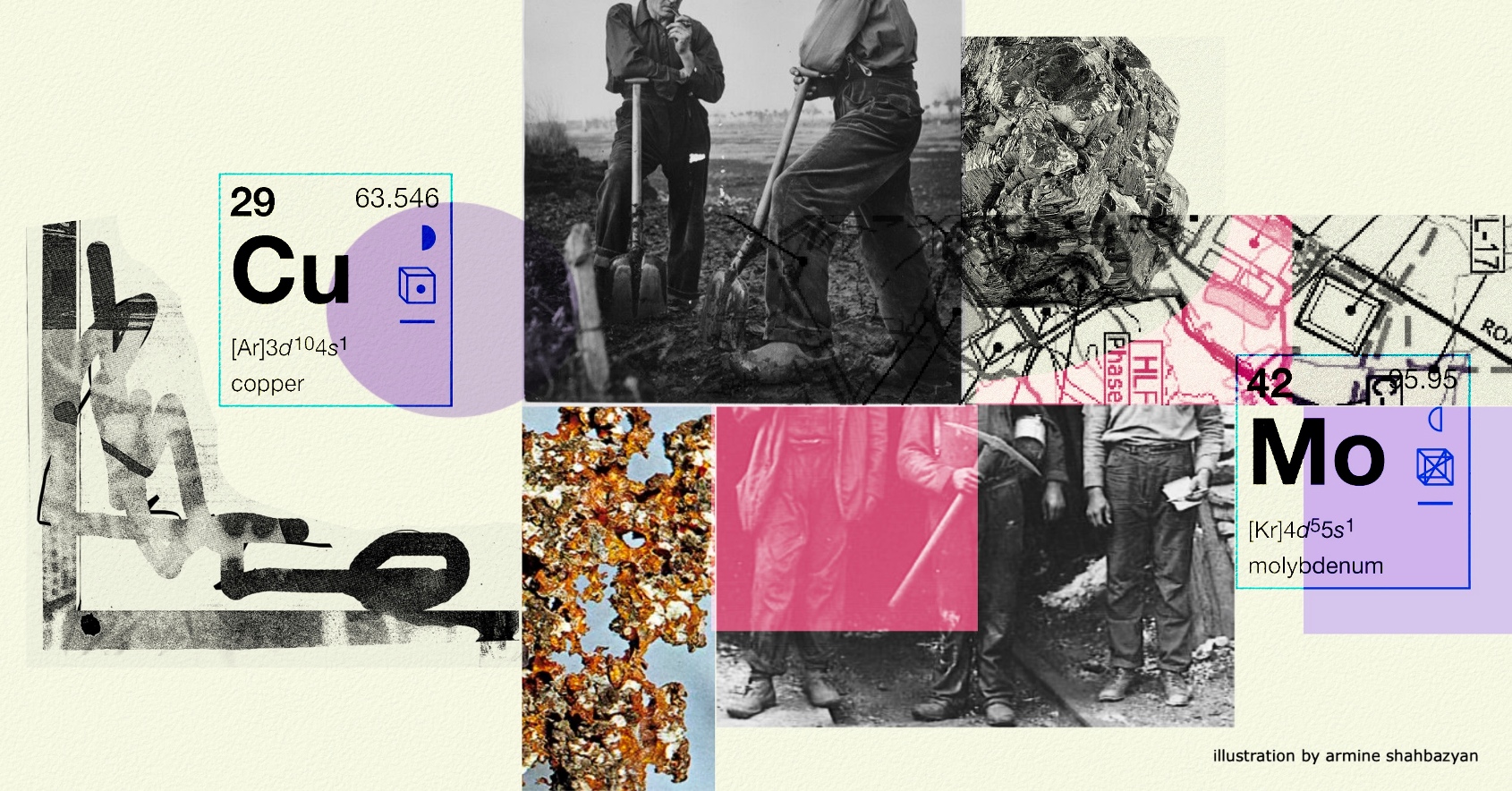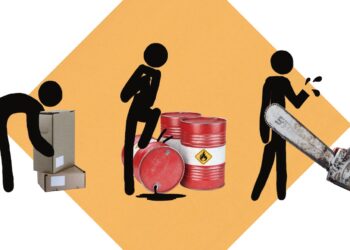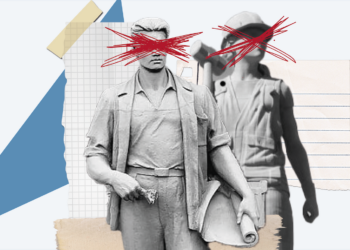
Listen to the article.
Three hundred kilometers outside Yerevan in the sleepy town of Kajaran, a wildcat strike has broken out among miners and technicians at the Zangezur Copper-Molybdenum Combine (ZCMC). Numbering over 2,000, participants in the strike have demanded higher pay citing dangerous working conditions, and the recent influx of Yerevan-based office workers whose salaries reportedly surpass that of the miners. In response, the ZCMC CJSC union and management issued a joint statement criticizing the action as “unlawful” and controversially posted workers’ pre-tax salaries on Facebook omitting deductions for health insurance payments or monthly union fees. The Union of Miners and Metallurgists released a comparatively moderate statement, acknowledging the strikers’ right to protest while cautioning against actions that could disturb the operations of the mine.
The Zangezur Copper-Molybdenum Combine is the largest mining enterprise in Armenia, and the country’s largest contributor of tax revenue. The Armenian government owns around 22% of shares in the firm and has reportedly received over $80 million through its minority stake. The strike is yet another entry in a growing list of controversies surrounding the mine’s operations; which include environmental degradation, and a $1.2 billion arbitration over a dispute between the nebulous web of owners, including Roman Trotsenko, a reputed oligarch whose business holdings were flagged by the State Department over Russia’s invasion of Ukraine. Last year, the general director of the mine boasted of an expected increase of production in the mine. While a protracted labor dispute threatens to be a costly affair for shareholders, Armenian law heavily favors employers.
The Limits of Legality
A recent addendum to Armenia’s Labor Code stipulates workers require 50% of all employees’ approval to declare a strike (down from the previous two-thirds). As of this writing, workers have organized a secret ballot to produce the 50% approval required by law, and so far over 2,000 workers have approved the strike action. The Labor Code also mandates trade unions to give written notice of a strike at least seven days prior to the strike itself. This law seems to exist purely to criminalize workers and stifle spontaneous worker actions such as wildcat strikes or walk-outs; important tools in an environment where serious power imbalances shape employee-employer relations. While traditional strikes serve as coordinated responses to intolerable working conditions and managerial neglect, wildcat strikes emerge spontaneously, without union approval or extensive planning. Therefore, if the law threatens to curb the self-organized activity of the workers, or if union representation has refused to back their activity (as demonstrated in the aforementioned statements of the ZCMC union), then breaking such a law becomes not just an act of defiance, but a necessity in the fight for fair labor rights.
However, the same exploitive legal framework was used to crush a wildcat strike by bus drivers last December. The strike, which materialized on the eve of the implementation of Yerevan’s widely criticized transportation payment overhaul, was swiftly suppressed: 39 drivers were fired, and subject to criminal charges (which were dropped). From the onset of the strike, city officials wasted no time accusing the drivers’ of “blackmail” for their demands, labeled strikers “saboteurs”, and implied their actions mask a real concern for the new payment reforms (which stipulate drivers cannot handle cash, to discourage supposed skimming). The speed of the strike’s defeat and the city government’s heavy-handed response to handling labor disputes highlight the fragile state of worker protections in the Republic of Armenia and a general absence of combative social movements. The lack of reticence in city officials’ trigger finger with regards to labor disputes could spell trouble for the miners, mechanics and technicians in Kajaran.
An Injury to One is an Injury to All
If we take the “resolution” of the bus drivers’ strike in December into consideration, mass firings—and by consequence, the threat of homelessness and destitution—are a direct expression of the domination of one class over the other. In other words, terms like “entrepreneurship” and “innovation”, so obnoxiously harped upon in every discussion about economic development by tech evangelists and bourgeois economists, mystify the utility of force in the accumulation of wealth and production of groundbreaking technologies. Workers in Kajaran already faced down the threat of replacement, for example. These threats are not simply the bombastic remarks of a tyrannical manager or indifferent shareholder. They are part of a wider, subtle configuration of social violence employed to enforce the kind of workplace discipline necessary for record levels of production, and the preservation of unequal social relations which exist in Armenia.
To some, a miners’ strike might appear to be an anachronism, a relic which belongs to some bygone era in which children were mutilated by factory machinery and hired goons bashed the heads of outspoken workers. Reportedly the largest strike in Kajaran in 70 years, this movement demands closer attention. Besides being a major boon to the regional economy, the Zangezur Copper-Molybdenum Combine represents a confluence of serious threats confronting Armenians, particularly severe environmental destruction. The strike could be a flashpoint in a country where worker protections are weak and regulatory safeguards against corporate and government misconduct remain inadequate.
Nonetheless, these contradictions will require more than stringent regulations or the occasional fine levied against corporations. Perhaps the miners of Kajaran, in the bowels of the Earth, have found an element undiscoverable in the stuffy halls of the National Assembly and nonprofit boardrooms: solidarity. In any case, the events in Kajaran should not be hijacked to serve the interest of opposition machinations or diaspora commentators for clickbait. Rather, the strike could be a catalyst for independent political activity outside the grasp of establishment institutions, and a reminder of the potency mass collective action holds in actualizing transformational social change.
Also see
Dangerous Work: Accidents in the Workplace
Health and security protocols are not always upheld in workplaces in Armenia, often leading to employees getting injured.
Read moreUnregistered Employment, Lost Taxes, Compromised Rights
In the last three years, the number of reported cases of unregistered workers has increased in Armenia. Despite numerous legislative regulations and monitoring tools, unregistered employment remains a critical issue.
Read moreWomen and the Economy: The Intellectual Capital of Armenia
While the social implications of gender imbalance are often discussed in terms of gender equality, it is important to also consider the significant economic consequences of under-leveraging 52% of the educated potential workforce and the loss of human capital productivity.
Read more



